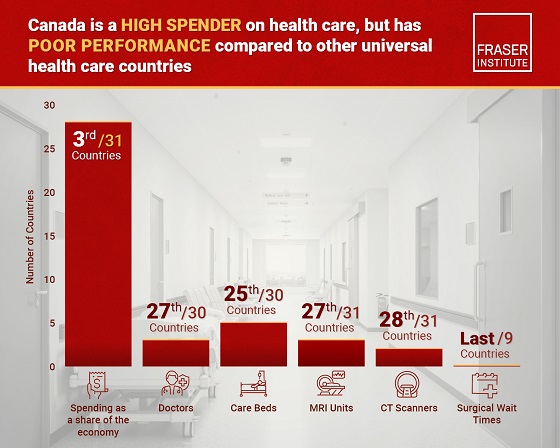Uncategorized
Brazil’s Bolsonaro assumes presidency, promises big changes

BRASILIA, Brazil — Jair Bolsonaro was sworn in as Brazil’s president Tuesday, taking the reins of Latin America’s largest and most populous nation with promises to overhaul myriad aspects of daily life and put an end to business-as-usual governing.
For the far-right former army captain, the New Year’s Day inauguration was the culmination of a journey from a marginalized and even ridiculed congressmen to a leader who many Brazilians hope can combat endemic corruption as well as violence that routinely gives the nation the dubious distinction of being world leader in total homicides.
A fan of U.S. President Donald Trump, the 63-year-old longtime congressman rose to power on an anti-corruption and pro-gun agenda that has energized conservatives and hard-right supporters after four consecutive presidential election wins by the left-leaning Workers’ Party.
Bolsonaro was the latest of several far-right leaders around the globe who have come to power by riding waves of anger at the establishment and promising to ditch the status quo.
“Congratulations to President @jairbolsonaro who just made a great inauguration speech,” Trump tweeted. “The U.S.A. is with you!”
Tuesday’s festivities in the capital of Brasilia began with a motorcade procession along the main road leading to Congress and other government buildings. Bolsonaro and his wife, Michelle, stood up in an open-top Rolls-Royce and waved to thousands of onlookers.
They were surrounded by dozens of guards on horses and plain-clothes bodyguards who ran beside the car.
Once inside Congress, Bolsonaro and his
He promised to combat the “ideology of gender” teaching in schools, “respect our Judeo-Christian tradition” and “prepare children for the job market, not political militancy.”
“I call on all congressmen to help me rescue Brazil from corruption, criminality and ideological submission,” he said.
A short time later, Bolsonaro spoke to thousands of supporters outside, promising to “free Brazil” from socialism and political correctness.
As he spoke, supporters began to chant “Myth! Myth! Myth!”— a nickname that began years ago with internet memes of Bolsonaro and became more common during last year’s campaign. Bolsonaro’s middle name is Messias, or Messiah in English, and many supporters believe he was chosen by God to lead Brazil, an assertion bolstered after Bolsonaro survived a stabbing during a campaign rally in September.
During Tuesday’s speech, Bolsonaro stopped at one point, pulled out a Brazilian flag and wildly waved it, prompting roars from the crowd.
“Our flag will never be red,” Bolsonaro said, a reference to communism. “Our flag will only be red if blood is needed to keep it green and yellow.”
Brasilia was under tight security, with 3,000 police patrolling the event. Military tanks, fighter jets and even anti-aircraft missiles also were deployed. Journalists were made to arrive at locations seven hours before festivities began, and many complained on Twitter of officials confiscating food they had brought for the wait.
The increased security came at Bolsonaro’s request. His intestine was pierced when a knife-wielding man stabbed and nearly killed him, and today Bolsonaro wears a colostomy bag. His sons, politicians themselves, had insisted their father could be targeted by radicals, but security officials have not spoken of threats.
Bolsonaro did little moderating since being elected in October, with progressives and liberals decrying stances that they say are homophobic, sexist and racist.
The new president, who spent nearly three decades in Congress, has also drawn international criticism for his plans to roll back regulations in the Amazon and his disinterest in social programs in a country that is one of the world’s most unequal in terms of income.
On the economic front, where Bolsonaro will ultimately lead Latin America’s largest economy is unknown, as during the campaign he reversed course from previous statist stances with pledges to lead market-friendly reforms. He also promised to overhaul Brazil’s pension system and privatize several state-owned companies, which gave him wide support among financial players.
On Tuesday, Bolsonaro reiterated his commitment to fighting crime in a nation that has long led the world in annual homicides. More than 63,000 people were killed last year.
He wants to tackle the problems in part by shielding police who kill during an operation from criminal prosecution.
“We are counting on Congress to provide the judicial support so police can do their jobs,” Bolsonaro said,
Human rights groups fear that
The most notable foreign leaders who attended were associated with far-right movements: Israeli Prime Minister Benjamin Netanyahu and Hungarian Prime Minister Viktor Orban.
Leftist Presidents Nicolas Maduro of Venezuela, Daniel Ortega of Nicaragua and Miguel Díaz-Canel of Cuba, deemed dictators by Bolsonaro, were uninvited by Bolsonaro’s team after the foreign ministry sent them invitations. Leftist President Evo Morales of Bolivia, however, was invited and warmly embraced Bolsonaro after the ceremony. The United States was represented by Secretary of State Mike Pompeo.
Seven of Bolsonaro’s 22 Cabinet ministers are former military personnel, more than in any administration during Brazil’s 1964-1985 dictatorship. That has sparked fears among his adversaries of a return to autocratic rule, but Bolsonaro insists he will respect the country’s constitution.
Riordan Roett, a professor and director emeritus of Latin American Studies at Johns Hopkins University, noted that generals have administration skills that can be useful in government.
“The danger is that as a former low-ranking military officer, (Bolsonaro) will be swayed by some of the generals to come down hard on criminality, drug dealers, etc., and that may cause a backlash and many innocent people could be caught in the crossfire,” Roett said.
Bolsonaro’s Liberal and Social Party will have 52 seats in Brazil’s 513-member lower house, the second largest bloc behind the Workers’ Party.
Gary Hufbauer of the Peterson Institute for International Economics, a Washington-based
“Bolsonaro needs some quick successes to get off on the right foot with the public and the political elites,” said Hufbauer, adding that a failure to do that would likely reduce Bolsonaro’s honeymoon period to six months.
___
Associated Press video journalist Yesica Fisch reported this story in Brasilia, AP writer Mauricio Savarese reported from Sao Paulo and AP writer Peter Prengaman reported from Rio de Janeiro. AP writer Stan Lehman in Sao Paulo contributed to this report.
Yesica Fisch, Mauricio Savarese And Peter Prengaman, The Associated Press
Uncategorized
New report warns WHO health rules erode Canada’s democracy and Charter rights

The Justice Centre for Constitutional Freedoms has released a new report titled Canada’s Surrender of Sovereignty: New WHO health regulations undermine Canadian democracy and Charter freedoms. Authored by Nigel Hannaford, a veteran journalist and researcher, the report warns that Canada’s acceptance of the World Health Organization’s (WHO) revised International Health Regulations (IHR) represents a serious erosion of national independence and democratic accountability.
The IHR amendments, which took effect on September 19, 2025, authorize the WHO Director-General to declare global “health emergencies” that could require Canada to follow directives from bureaucrats in Geneva, bypassing the House of Commons and the will of Canadian voters.
The WHO regards these regulations as “binding,” despite having no ability or legal authority to impose such regulations. Even so, Canada is opting to accept the regulations as binding.
By accepting the WHO’s revised IHR, the report explains, Canada has relinquished its own control over future health crises and instead has agreed to let the WHO determine when a “pandemic emergency” exists and what Canada must do to respond to it, after which Canada must report back to the WHO.
In fact, under these International Health Regulations, the WHO could demand countries like Canada impose stringent freedom-violating health policies, such as lockdowns, vaccine mandates, or travel restrictions without debate, evidence review, or public accountability, the report explains.
Once the WHO declares a “Pandemic Emergency,” member states are obligated to implement such emergency measures “without delay” for a minimum of three months.
Importantly, following these WHO directives would undermine government accountability as politicians may hide behind international “commitments” to justify their actions as “simply following international rules,” the report warns.
Canada should instead withdraw from the revised IHR, following the example of countries like Germany, Austria, Italy, Czech Republic, and the United States. The report recommends continued international cooperation without surrendering control over domestic health policies.
Constitutional lawyer Allison Pejovic said, “[b]y treating WHO edicts as binding, the federal government has effectively placed Canadian sovereignty on loan to an unelected international body.”
“Such directives, if enforced, would likely violate Canadians’ Charter rights and freedoms,” she added.
Mr. Hannaford agreed, saying, “Canada’s health policies must be made in Canada. No free and democratic nation should outsource its emergency powers to unelected bureaucrats in Geneva.”
The Justice Centre urges Canadians to contact their Members of Parliament and demand they support withdrawing from the revised IHR to restore Canadian sovereignty and reject blind compliance with WHO directives.
Uncategorized
CNN’s Shock Climate Polling Data Reinforces Trump’s Energy Agenda


From the Daily Caller News Foundation
As the Trump administration and Republican-controlled Congress move aggressively to roll back the climate alarm-driven energy policies of the Biden presidency, proponents of climate change theory have ramped up their scare tactics in hopes of shifting public opinion in their favor.
But CNN’s energetic polling analyst, the irrepressible Harry Enten, says those tactics aren’t working. Indeed, Enten points out the climate alarm messaging which has permeated every nook and cranny of American society for at least 25 years now has failed to move the public opinion needle even a smidgen since 2000.
Appearing on the cable channel’s “CNN News Central” program with host John Berman Thursday, Enten cited polling data showing that just 40% of U.S. citizens are “afraid” of climate change. That is the same percentage who gave a similar answer in 2000.
Dear Readers:
As a nonprofit, we are dependent on the generosity of our readers.
Please consider making a small donation of any amount here.
Thank you!
Enten’s own report is an example of this fealty. Saying the findings “kind of boggles the mind,” Enten emphasized the fact that, despite all the media hysteria that takes place in the wake of any weather disaster or wildfire, an even lower percentage of Americans are concerned such events might impact them personally.
“In 2006, it was 38%,” Enten says of the percentage who are even “sometimes worried” about being hit by a natural disaster, and adds, “Look at where we are now in 2025. It’s 32%, 38% to 32%. The number’s actually gone down.”
In terms of all adults who worry that a major disaster might hit their own hometown, Enten notes that just 17% admit to such a concern. Even among Democrats, whose party has been the major proponent of climate alarm theory in the U.S., the percentage is a paltry 27%.
While Enten and Berman both appear to be shocked by these findings, they really aren’t surprising. Enten himself notes that climate concerns have never been a driving issue in electoral politics in his conclusion, when Berman points out, “People might think it’s an issue, but clearly not a driving issue when people go to the polls.”
“That’s exactly right,” Enten says, adding, “They may worry about in the abstract, but when it comes to their own lives, they don’t worry.”
This reality of public opinion is a major reason why President Donald Trump and his key cabinet officials have felt free to mount their aggressive push to end any remaining notion that a government-subsidized ‘energy transition’ from oil, gas, and coal to renewables and electric vehicles is happening in the U.S. It is also a big reason why congressional Republicans included language in the One Big Beautiful Bill Act to phase out subsidies for those alternative energy technologies.
It is key to understand that the administration’s reprioritization of energy and climate policies goes well beyond just rolling back the Biden policies. EPA Administrator Lee Zeldin is working on plans to revoke the 2010 endangerment finding related to greenhouse gases which served as the foundation for most of the Obama climate agenda as well.
If that plan can survive the inevitable court challenges, then Trump’s ambitions will only accelerate. Last year’s elimination of the Chevron Deference by the Supreme Court increases the chances of that happening. Ultimately, by the end of 2028, it will be almost as if the Obama and Biden presidencies never happened.
The reality here is that, with such a low percentage of voters expressing concerns about any of this, Trump and congressional Republicans will pay little or no political price for moving in this direction. Thus, unless the polls change radically, the policy direction will remain the same.
David Blackmon is an energy writer and consultant based in Texas. He spent 40 years in the oil and gas business, where he specialized in public policy and communications.
-

 Business1 day ago
Business1 day agoQuebecers want feds to focus on illegal gun smuggling not gun confiscation
-

 Business1 day ago
Business1 day agoEmission regulations harm Canadians in exchange for no environmental benefit
-

 Courageous Discourse1 day ago
Courageous Discourse1 day agoNo Exit Wound – EITHER there was a very public “miracle” OR Charlie Kirk’s murder is not as it appears
-

 Business1 day ago
Business1 day agoCanada has fewer doctors, hospital beds, MRI machines—and longer wait times—than most other countries with universal health care
-

 Alberta3 hours ago
Alberta3 hours agoCalgary’s High Property Taxes Run Counter to the ‘Alberta Advantage’
-

 Automotive1 day ago
Automotive1 day agoParliament Forces Liberals to Release Stellantis Contracts After $15-Billion Gamble Blows Up In Taxpayer Faces
-

 Alberta1 day ago
Alberta1 day agoPetition threatens independent school funding in Alberta
-

 Carbon Tax4 hours ago
Carbon Tax4 hours agoBack Door Carbon Tax: Goal Of Climate Lawfare Movement To Drive Up Price Of Energy






